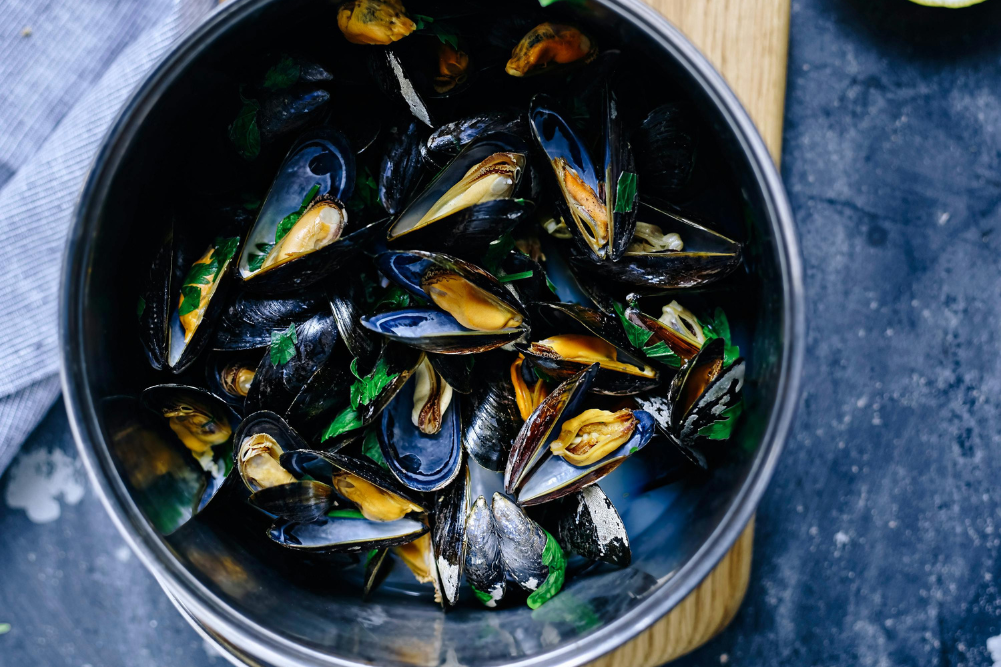How to use basil for headaches, coughs and diarrhoea
Sweet basil (Ocimum basilicum) is synonymous with Mediterranean cuisine. The word comes from the Greek meaning “king” (the herb of kings) and it has a fascinating history. Basil is intimately associated with the Feast of the Cross, originating from the mother of the emperor Constantine. Nicholas Culpeper, the famous English herbalist, noted that it was “an herb of Mars and under the Scorpion, therefore called ‘basilicon’”.
One of the many members of the mint family, basil is thought to be native to India as it has been grown here for at least 5000 years — certainly long enough to become acclimatised.
There are over 200 species of basil: Italian basil is called sweet basil, plus there is Thai basil, lemon basil (O. citriodorum) and holy basil or tulsi (O. sanctum). Apart from tulsi, most basils are hybrids of O. basilicum. Most basil plants are annuals, but some are perennial in warm climates, including holy basil. It’s very easy to grow and will produce leaves for much longer if the flowers are picked off as they develop (and used in cooking). After flowering, the plant becomes woody and soon dies off.
Basil plays a major role in many cuisines, including those of Indonesia, Thailand, Vietnam, Laos, Taiwan and Cambodia, along with Italian cuisine, and tulsi plays a major role in Indian (Ayurvedic) food and medicine.
History & mythology
Worldwide, there are many rituals and mythologies involving basil — a reflection of its importance cross-culturally. Interestingly, some of these legends are contradictory: the French call basil l’herbe royale, the herb of kings; Jewish folklore claims it aids strength when fasting; in Portugal, basil (in a pot) is presented to a sweetheart on religious holidays. Yet basil also represents hatred in ancient Greece, and in some countries of Europe it’s considered the symbol of Satan. Truly a mixed bag.
Holy basil (tulsi) is revered in Hindu religions where it’s believed that if given to the dying it will ensure a safe journey to their god.
Holy basil (tulsi) is revered in Hindu religions where it’s believed that if given to the dying it will ensure a safe journey to their god, similar to the ritual for the dying (incorporating basil) found in Europe and Egypt. In Romania and Serbia, sweet basil is placed (in pots) on church altars and used to prepare holy water.
In central Mexico, basil is used to draw fortune to a shop and is placed in the window where its growth reflects the prosperity of the business. African legends state that basil protects against the bite of scorpions.
Active ingredients
Basil’s main therapeutic component is the essential (volatile) oil. The different flavours of basil are created by different profiles of essential oils; for example, the lemon/lime basil has a higher level of the essential oil citral, whereas sweet basil has eugenol and the perfume is more reminiscent of cloves. These essential oils have been shown to have antimicrobial, antifungal, antiviral, insect repelling, anticonvulsant, hypnotic and antioxidant activities. The purple-leafed basils contain the highest levels of the antioxidant, anthrocyanidins.
Sweet basil also contains a variety of vitamins and minerals, including vitamin A and beta carotene, B vitamins and trace minerals. In cooking, basil leaves (and flowers) are eaten both fresh and cooked in soups, salads, sauces and stews, and can also be used as flavouring in ice-cream or chocolate.
The leaf is most commonly used, but in some cuisines the seeds are also soaked until gelatinous and used in dessert dishes such as the Southeast Asian faluda and sherbets.
Therapeutic activity
Sweet basil has been used traditionally for a wide variety of ailments: for the treatment of headaches, coughs, diarrhoea, constipation, warts, worms and kidney problems.
Scientific studies have shown that the active ingredients of basil are also anti-inflammatory. These components can reduce platelet aggregation and therefore thrombus (clot) formation (at least in mice). Studies on human platelets have shown similar activity. The anti-inflammatory activity works through the COX-2 pathways, conferring cardiovascular protection by providing antihypertensive and antithrombotic effects.
The activity of basil has also been shown to provide brain protection, particularly under conditions of reduced blood supply (ischaemia); and with its antioxidant, anti-inflammatory and anticonvulsant activities, it protects against neurological degeneration.
The Indian basil, tulsi, is reputed to manage a wide variety of conditions, including bronchitis, bronchial asthma, malaria, diarrhoea, dysentery, skin diseases, arthritis, painful eye diseases, chronic fever, insect bite — most conditions affecting humans. Tulsi is also said to possess antifertility, anticancer, antidiabetic, antifungal, antimicrobial, hepatoprotective, cardioprotective, antiemetic, antispasmodic, analgaesic, adaptogenic and diaphoretic actions. The volatile oil eugenol is claimed to be the active ingredient responsible for these activities. Tulsi has also been shown to induce apoptosis in lung cancer cells.
Both sweet basil and tulsi can function as an insecticide. It’s said that basil planted outside the kitchen door will help prevent flies and mosquitoes from entering. A study of the essential oil shows insect-repelling properties, and it is particularly toxic to mosquitoes.
With all these important activities attributed to the consumption of basil, it would be well worthwhile growing and regularly adding it to foods — both for its health-inducing properties and its delightful fragrance and taste.








